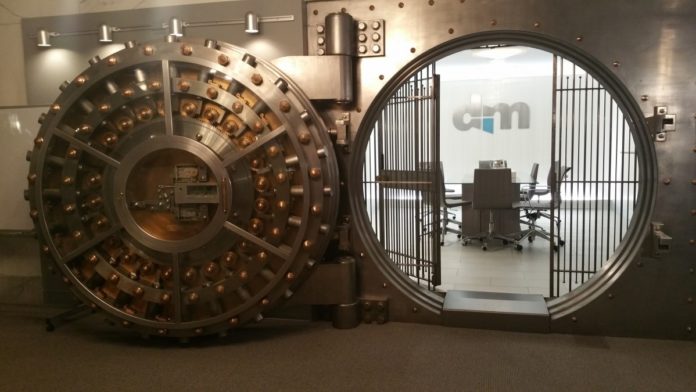A Senate panel on Thursday wrapped up three days of hearings on legislation that pits banks against credit unions over tax policy.
The state’s banking industry is asking lawmakers to approve a bill that it says would put banks on equal footing with credit unions and the Farm Credit System, which don’t pay state or federal income taxes.
The bill would allow banks to deduct interest income from business loans and single-family housing loans in rural areas of the state.
The industry argues the bill makes banks more competitive, holding out the possibility that it will lead to lower interest rates for borrowers, possibly a quarter of a percentage point.
“Let us compete on business loans for our customers statewide,” said Doug Wareham, president and chief executive of the Kansas Bankers Association. “At the end, the winners are the consumers, the borrowers.”
Banks now pay a privilege tax, which costs financial institutions 2.25% up to the first $25,000 of net income and rises to 4.375% for income over $25,000.
The tax brings in about $45 million a year, although the impact is expected to be less because it doesn’t exempt banks from taxes on all interest income.
A fiscal note released Thursday showed that the bill would cost the state about $43 million in revenue, although it assumed that the legislation would apply broadly to banks making loans in other states and countries.
The legislation will be reworked so it doesn’t provide a larger tax break than what was intended when it was drafted. It was not immediately known just how much less the bill will cost, although some speculate it could still be hefty.
Republican state Sen. Rob Olson said he believes the privilege tax puts banks at a disadvantage.
“I think there are a lot of credit unions doing the right thing,” Olson said. “But I think there are some large ones that are taking advantage of the tax” benefits.
“I just want to level the playing field to make it fair. If it’s fair for Farm Credit and if it’s fair for credit unions, it probably ought to be fair for banks.”
The legislation has drawn strong opposition from the credit unions, which are not-for-profit financial cooperatives and do not pay federal income taxes and are not subject to financial institutions’ privilege tax. They do, however, pay property, payroll and other taxes.
They are member-owned. They return their profits to their members, who pay taxes on the dividends. The credit unions also say their members benefit from lower interest rates on loans and higher interest rates on savings. They serve 668,000 Kansans.
Stephanie Mullholland, director of legislative affairs for the Heartland Credit Union Association, said the bill would tilt the marketplace in favor of the banks.
The banking industry, she said, will pay the same tax rates but will not be subject to the same regulations as credit unions.
Among other things, Mullholland said there are caps in place that limit loans in the commercial and agriculture sectors.
State law also limits where credit unions can locate as well as the number of consumers they can serve.
It also bars local governments from depositing tax money in their local credit union.
“This bill would unlevel the playing field,” Mullholland said. “It would give banks and credit unions the same type of taxation but not subject them to the same rules and market restrictions.”
She acknowledged it is still unknown how the change in tax policy for the banks would affect the bottom line of credit unions.
“We have not seen this sort of change that I’m aware of,” she said. “For us, we don’t understand what the problem is.”
Some lawmakers were skeptical about whether the bill would lead to better rates for borrowers in the marketplace.
Republican state Sen. Eric Rucker said the idea that all of the benefits from changing the tax policy would reduce consumer lending rates “leaves me with my head scratching.”
“There would be no benefit befalling the private stockholders of the bank should the elimination of this tax take place,” Rucker asked.
Rucker questioned whether the Bankers Association would approve of the Legislature requiring the consumer rates be reduced if the bill passed.
Wareham said if such a provision was added to the bill, it should cover the credit unions, too.
“We believe in free markets. We believe in competition. And that’s what this brings,” Wareham told Rucker.
Republican state Sen. Dennis Pyle raised a similar question, asking how changing tax policy would cause the interest rate to come down.
Wareham pointed to testimony showing that banks charged higher rates on loans than credit unions. He said they can do that because of the tax rates.
“Why do they offer lower rates? Because they’re not paying those taxes,” Wareham said.
“I would contend that if you look at the tax savings that our competitors — Farm Credit and credit unions — have, are they passing on all that tax savings? Where is the accountability for them?”
Mullholland turned that around on the banks. She asked what ensures the banks will return the tax benefits to consumers.
“There’s no requirement and no accountability for that to happen in the bill.”
















